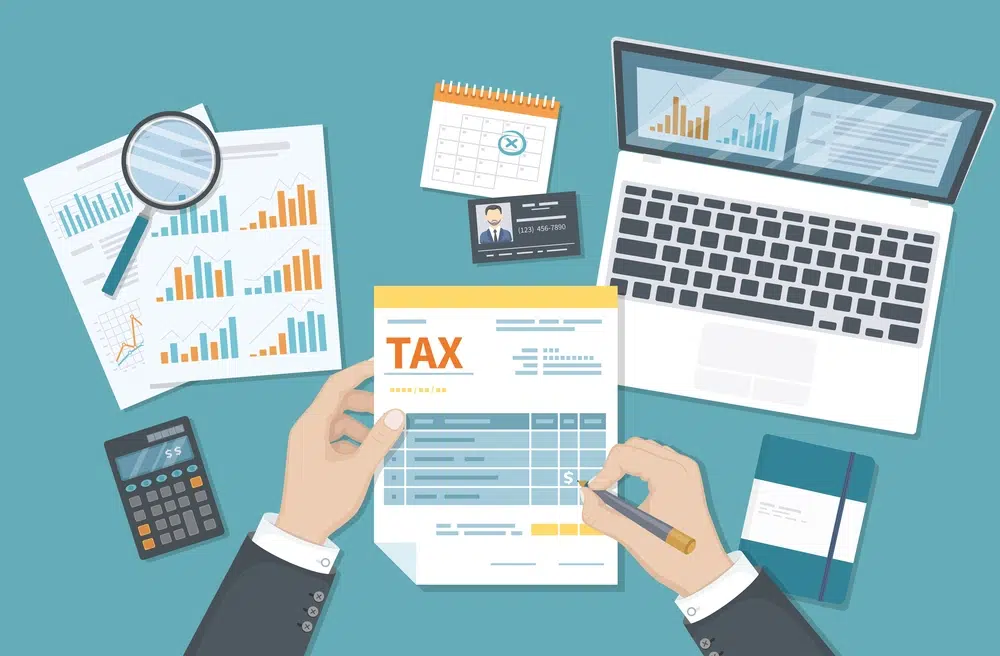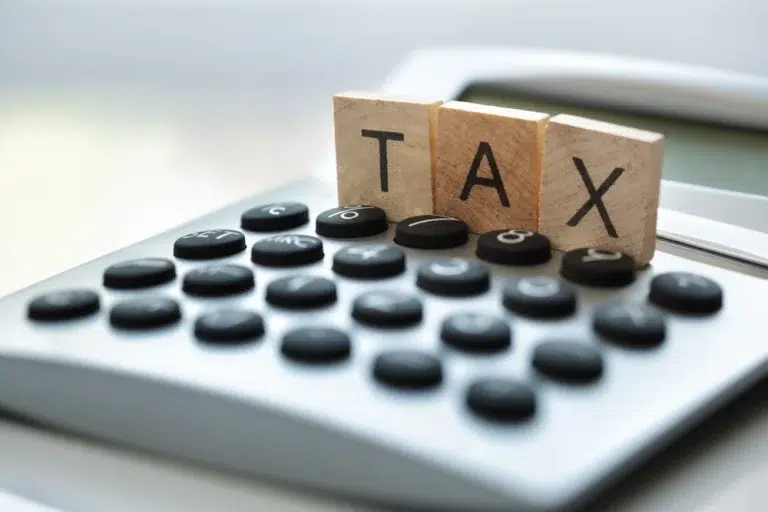Insurance premium tax, also known as IPT, impacts much of the insurance industry, but not everyone knows what it means and what its purpose is.
Fear not though, because in this complete guide, we’ll explore what IPT is, who pays it, how it’s paid and how it compares to other taxes such as VAT, whilst also answering some of your most frequently asked questions on the topic.
- What is Insurance Premium Tax?
- How much is Insurance Premium Tax?
- How is Insurance Premium Tax calculated?
- Who pays Insurance Premium Tax?
- Which types of insurance are exempt from IPT?
- Is IPT the same as VAT?
- When should you register for Insurance Premium Tax?
- How to register?
- How to pay Insurance Premium Tax?
- FAQs about Insurance Premium Tax
What is Insurance Premium Tax?

To put it simply, Insurance Premium Tax (IPT) is a tax levied on general insurance premiums in the UK.
IPT is collected by the insurance provider and then paid to HM Revenue & Customs (HMRC). Unfortunately, policyholders ultimately bear the cost of the tax as it is included in their insurance premiums. Some types of insurance are exempt from IPT though, such as most long-term insurance, reinsurance, and insurance for commercial ships and aircraft.
How much is Insurance Premium Tax?
Insurance Premium Tax (IPT) is calculated as a percentage of the insurance premium paid by the policyholder. There are two rates for IPT:
- Standard Rate: This is set at 12% and applies to most general insurance policies, including home insurance, car insurance, and pet insurance.
- Higher Rate: This is set at 20% and applies to specific types of insurance policies such as travel insurance, certain insurance policies sold with mechanical or electrical appliances, and some types of vehicle insurance.
These rates mean that for a typical insurance premium, the applicable rate (either 12% or 20%) is added on top of the base premium amount, increasing the total cost of the insurance policy to the consumer.
How is Insurance Premium Tax calculated?
IPT is calculated by applying the relevant rate to the total premium charged by the insurer. For instance:
If you have a home insurance policy with a premium of £500, the IPT at the standard rate (12%) would be £60, making the total cost of the policy £560.
The additional £60 is then paid to the UK government by the insurer.
Who pays Insurance Premium Tax?

Insurance providers are responsible for paying insurance premium tax. Although the tax is often passed on to the customer in their premiums, it’s the insurance providers responsibility to make sure that IPT is paid to the UK government.
Why do we pay Insurance Premium Tax?
Insurance premium tax is a compulsory tax which generates the UK Government’s revenue. Customers of insurance brokers or providers then typically have this cost included in their insurance premiums, which the UK Government uses to support the country.
Can you claim back Insurance Premium Tax?
No, you cannot claim back Insurance Premium Tax (IPT). Once IPT is paid on an insurance premium, it is not refundable or recoverable.
This is in contrast to Value Added Tax (VAT), which can often be reclaimed by businesses on their purchases. IPT is a final tax on the insurance premium, meaning that once it has been added to the cost of the insurance policy and paid to HM Revenue & Customs (HMRC), it remains a fixed cost.
Which types of insurance are exempt from IPT?
There are various types of insurance policies which are exempt from IPT. These include:
- Life, health and medical insurance (Accident, Sickness)
- Land vehicles
- Railway rolling stock
- Aircraft & Ships
- Goods in transit
- Motor vehicle liability
- General liability
- Legal expenses
- Long term insurances
If you’re still not sure whether a policy is exempt from IPT or not, a good rule of thumb is to remember that the following risks are exempt from IPT:
- risks located outside the UK
- reinsurance
- long term business
- commercial ships
- contracts relating to the Channel Tunnel
- lifeboats and lifeboat equipment
- commercial aircraft
- international railway rolling stock
- goods in foreign or international transit
- export finance related insurance
- contracts relating to motor vehicles for use by disabled persons (Motability)
- spacecraft
To learn more about IPT exemptions, read section 5 of HM Revenue & Customs’ Notice IPT1.
Is IPT the same as VAT?
No, insurance premium tax (IPT) and value added tax (VAT) are not the same.
Whilst they’re both forms of taxation which are collected by the government, they differ in that IPT is a specific tax applied directly to insurance premiums, whereas VAT is a consumption tax which is applied to most goods and services at each stage of production and distribution. Essentially, IPT is a one-off tax imposed on insurance policies whilst VAT accumulates throughout the supply chain and is ultimately paid by the customer’s transaction.
IPT was also introduced around 20 years after VAT in the UK to ensure the insurance sector contributed to tax revenue.
When should you register for Insurance Premium Tax?
You must register and account for Insurance Premium Tax (IPT) if you’re:
- An insurer receiving or planning to receive taxable insurance premiums.
- A person charging an insurance-related fee for a higher rate contract (known as a taxable intermediary).
Registration is not required if you are an insurer who only handles premiums related entirely to exempt insurance contracts. However, if you receive premiums that are partly related to exempt contracts and partly to taxable contracts, you must register. You must also inform the HMRC within 30 days of intending to receiving taxable premiums as an insurer.
How to register?
You can register to start paying insurance premium tax via the GOV.uk website. On the following webpage on the UK government’s website you can find an online form which you’ll need to fill out: Register for Insurance Premium Tax.
Be aware that there are different forms that apply for different circumstances and insurers, so be sure to fill out the correct form!
What documentation do I need to keep once I’ve registered?
According to the HMRC, you need to make sure you keep record of the following things:
- Any business and accounting records
- Policy documents, cover notes, endorsements and similar documents (original or copies)
- All credit and debit notes or other documents which show an increase or decrease in the amount of any premiums due, and any copies of such documents that you issue.
- Other records the HMRC asks you to keep
Processing tax returns
Now that you’ve registered, you can expect that the HMRC will ask you to submit your return. You’ll know because you’ll recieve a “Notice to File” – a self-assessment tax return in order to avoid penalties and escape disciplinary actions. This happens typically every 3 months, and you should still send a return even if you don’t owe any IPT.
To send a return you can use this online service: (IPT100).
How can I pay Insurance Premium Tax?

There are several ways you can opt to pay insurance premium tax:
- Direct Debit
- By cheque (postal)
- Approve a payment through online banking account
- Faster payment through Online or Telephone banking
- Bacs (bank-to-bank transfer)
- CHAPS (Clearing House Automated Payment System)
We recommend that leave as much as time as possible to allow for payments to reach HMRC e.g. 10 days if it’s a direct debit payment.
You find out more about paying Insurance Premium Tax, be sure to visit the How to pay Insurance Premium Tax page on the GOV.uk website.
FAQs about Insurance Premium Tax
Are healthcare insurance premiums tax deductible?
In the UK, healthcare insurance premiums are generally not tax deductible for individuals. This means that if you pay for private health insurance out of your own pocket, you cannot deduct these expenses from your taxable income on your personal tax return.
However, while individuals cannot generally deduct private and permanent health insurance premiums from their taxes, businesses can deduct these expenses when providing them as benefits to employees, although the employees themselves will be taxed on the value of this benefit.
Is it mandatory to pay Insurance Premium Tax?
Yes, insurance providers and brokers are legally required to pay insurance premium tax on a wide range of insurances.
How does IPT affect the price of car insurance?
IPT increases the standard price of car insurance by adding a percentage-based tax to the insurance premium, which directly impacts the total amount paid by the policyholder, making car insurance more expensive in the UK.
However, if insurance premium tax rates were to change in the future, this could potentially impact the cost of car insurance premiums. For instance, if IPT changed and became a lower rate, insurance arranged by providers would be subject to less tax, which could lower the price for new car insurance policyholders.
How have insurance premium tax rates increased over the years?
Back in October 1994 when insurance premium tax was first introduced the standard rate was 2.5%. At that time, there was only a standard rate, but around 3 years later in 1997 the higher rate was introduced, applied on the likes of travel or specialist vehicles insurances. At that time, the standard rate was 4% whilst the higher rate was 17.5%.
The higher rate of IPT then reached 20% in 2011, which continues to be the higher rate to this day, whilst the standard rate was 6%. The standard rate has since doubled reaching 12% in June 2017 and it has remained this way since*.
*stated in July 2024
What rate is Insurance Premium Tax now?
There are currently two rates for insurance premium tax: the standard rate at 12% and the higher rate at 20%.
When was Insurance Premium Tax introduced?
Insurance Premium Tax was introduced in 1994 and it was designed to generate revenue from the insurance sector, which is exempt from Value Added Tax (VAT).
Do you need help sourcing an insurance policy? No problem! Get in touch with us today and we can help you find insurance cover that not only ticks all your boxes, but also doesn’t exceed your budget. You can either visit us in a local Howden branch, give us a call on 01273 027 000, or Get a Quote via the Howden website!
You can also read…
- Are there car modifications that don’t affect insurance?
- When Does the Tax Year Start in the UK?
- When is Corporation Tax Due? Payment Rates
- What is Making Tax Digital in the UK?
- The tax truth about side-hustles
- Can you tax a car without insurance?
- Can You Tax a Car Without an MOT?
- How to tax a car: Your complete guide
- How much will electric car tax be?
- How to Cancel Car Tax: A Step-by-Step Guide
- The 10 cheapest cars to insure for learner drivers in 2025
- Is there vat on van insurance? Your questions answered

